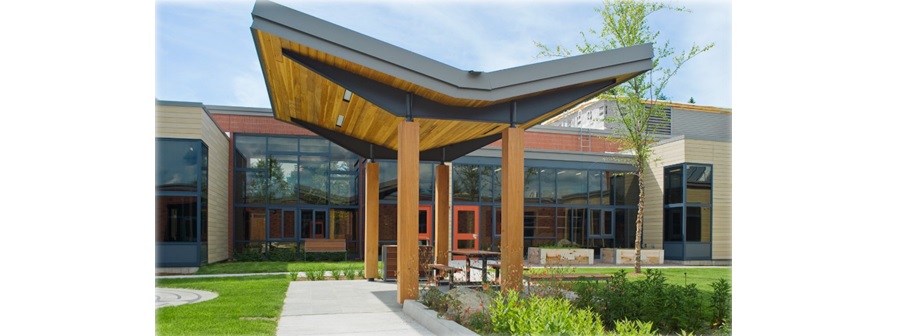In February, the Vermont Department of Mental Health hired Daryl Hall as the CEO of the Vermont Psychiatric Care Hospital (VPCH) in Berlin. VPCH’s prior CEO, Emily Hawes, became the Commissioner of Mental Health last year.
Hall previously served as the CEO of the 170-bed Logansport State Hospital in Indiana. VPCH operates 25 beds exclusively for involuntary patients.
“I’ve really enjoyed the transition,” Hall told Counterpoint. “For me, it’s been pretty refreshing to be around open-minded people who have some great idealistic thinking about things, which to me spurs creativity and helps us find some new ways to do old things and sometimes to do new things.”
By his account, as CEO, Hall supports staff, sets internal policy (with the help of a six-person “brain trust”), and works to ensure regulatory compliance before the Centers for Medicare and Medicaid Services and the Joint Commission.
“Honestly, for me right now, there’s still a fair amount of a learning curve in just understanding the differences between Vermont state government and Indiana state government,” he admitted.
At his old job, Hall oversaw a forensic psychiatric hospital, serving patients who had entered the mental health system through a criminal court. No such dedicated facility exists in Vermont.
“In Indiana, the pathway into involuntary hospitalizations is really heavily influenced through the legal system. Whereas in Vermont there are a lot of folks who are in emergency departments and holding for beds, in Indiana that tends to be jails because of that forensic piece,” Hall explained. “Here, we don’t have that component, so I feel like it’s much more of a collaborative effort among providers to really take a look at the level of care.”
Before joining the Indiana Division of Mental Health and Addiction, Hall worked for the Indiana Department of Corrections as a director of programming. He stressed the differences between prisons and psychiatric facilities.
“A lot of times folks want to, from the outside, look at them as similar, in that folks are locked up against their will,” he said. “Corrections is really designed to provide public safety, and safety is an element of us, but I think we’re looking more at long-term qualify of life both for our clientele and their families.”
VPCH seems to offer new possibilities to Hall. “We talk about client-centered therapy in the field, and I’ve heard that terminology for 25 years. I’ve never seen it quite like I see it here, where folks have really bought into that idea,” he asserted. “A real strength is meeting clients where they are and understanding that this is really their life, and we’re a part of it at this point in time and trying to find ways to help them get back on a track and down a continuum with lesser services and into the community, where they’ll be living active lives.”
Hall believes that psychiatric hospitals have changed over the years in response to critiques by reformers, in part by raising their staff-to-patient ratios to provide individualized care. The State of Vermont built VPCH in 2014, 180 years after the opening of the Brattleboro Retreat, its other active psychiatric-only hospital.
“I think it was built with a lot of input from survivor groups and advocacy groups, so as far as space, we have much smaller units. Our largest unit is eight, so folks have more personal space,” Hall noted. “It’s designed to look a little different than what a hospital looks.”
VPCH uses restraint, seclusion, and involuntary medication. But these techniques don’t appear to define its therapeutic approach for Hall, who described an effort to incorporate “mutual input” and to move away from “the traditional medical model of ‘you’re the patient; I’m the doctor; do what I say.’”
With a masters in clinical psychology, Hall started his career as a clinician before moving into managerial and administrative work. “At first I thought I was going to go into doing individual therapy,” he recollected. “That’s kind of my first love, the clinical piece of it, so being in a hospital setting is comfortable to me and even more so, as far as my training goes, than corrections.”
In the first months of his tenure, the continued risk of COVID-19 has caused some frustration. “For most folks, they’ve moved out and away from [coronavirus precautions]. For us, we still have a fair amount of rules and regulations with the safety of our staff and our patients,” he said. “We’re trying to find ways to re-engage, trying to look pre-COVID a little bit, but it’s just kind of a slow road in getting there as we keep having these little blips on the screen as it relates to COVID.”
Over the long term, Hall hopes to reduce the stigma of inpatient psychiatry locally by strengthening VPCH’s ties with its neighbors. “One thing that I would like to do here is for us to become a very active community partner. A lot of times folks look at a psychiatric hospital as ‘that place off in the distance.’ We’ve historically built hospitals outside of towns,” he observed.
Today, as Hall sees it, psychiatric hospitals like VPCH will continue to evolve, including in ways that may lie outside of their control. “The entire healthcare field has really kind of risen up and started to change a little bit,” he remarked. “So how that looks in terms of staffing – and, again, it’s not just at this hospital but across the whole medical field – we’re trying to work through some of that piece, and that piece has actually elevated to Washington, DC, to kind of look at our whole national healthcare model, how that needs to look in the future, and how we provide services more efficiently.”

